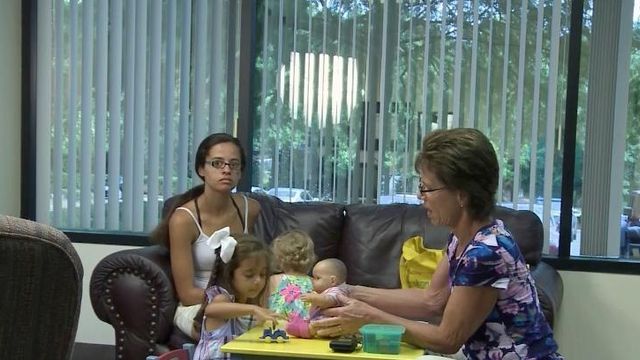Developmental screenings, abundant in NC, help kids with disabilities
In 2004, North Carolina's Medicaid program mandated developmental screening as part of well child pediatric visits.
Posted — UpdatedEvery child is unique, and that means they don't all develop in the same way.
Sixteen percent of children have certain disabilities, such as speech or language delays, mental retardation, learning disabilities or emotional and behavioral issues.
North Carolina ranks high in screening for these disabilities and providing early interventions.
Being a mother of young children, Stephanie Stickney of Raleigh was always full of questions: about her kids' eating or when they started walking and talking. Stickney's 4-year-old daughter, Kaia, grew up with special challenges.
"Kaia's been in speech therapy since she was about 18 months old," Stickney said. "She didn't talk. She kind of pointed and grunted."
She was three to four months behind her peers.
In 2004, North Carolina's Medicaid program mandated developmental screening as part of well child pediatric visits.
Four years before that, though, what is now known as Community Care of North Carolina helped begin efforts to standardize screening tools and practices.
Now, 91 percent of primary care practices in the state include the screening in well child visits.
"We are very excited about that because we are quite sure that we're ahead of most everyone else in the country in terms of our rates," said Dr. Marian Earls of CCNC.
From birth to 5 years of age, the screening tests for hand and motor skills, such as crawling and walking, language and play skills, and social and emotional development.
The results may lead to referrals for regular therapy for the child or assistance for the parent.
"So, they may help the family get connected to a good child care setting or to a mothers' morning out or those shorts of things," Earls said.
With early intervention children are better prepared for success as they begin kindergarten.
Stickney said the speech therapy has help Kaia head into preschool with confidence.
There are still children in the state who are not being screened, though, and whose developmental issues are keeping them behind their peers.
While nearly all pediatricians accept Medicaid insurance, there is still a lack of pediatricians in many communities, so those populations have problems with access to medical care.
Sometimes the problem is that parents simply miss well child visit appointments; they simply wait until their child is sick or needs a shot.
This type of screening makes every doctor visit valuable to that family.
• Credits
Copyright 2024 by Capitol Broadcasting Company. All rights reserved. This material may not be published, broadcast, rewritten or redistributed.




